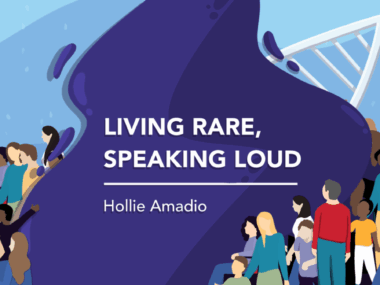Understanding My Own Weird Habits Allowed Me to Help My Daughter Relax
Written by |

The narrator had me at the edge of my seat. Finally, after almost an hour, I was sure I knew how this would end. And then, plot twist! It was the friend from the beginning of the episode. My surprised yelp caused my husband, PJ, to glance up from his laptop.
“Which one is this?” he asked knowingly.
After giving him the name of the episodic true crime documentary, I gushed about what I’d just seen and included every detail. “I would love for people to see how you unwind,” he chuckled as he returned to his work.
True crime documentaries may not be a conventional relaxation method, but it’s mine. I know the unmistakable feeling of joy and relaxation when I find my favorite station or streaming platform and get lost in episode after episode of this particular genre. Whether it has my undivided attention or is white noise so that I can concentrate on other projects, it’s the best way to lower my blood pressure after a particularly stressful day.
“Is this weird?” I asked my husband between episodes one day.
“It’s who you are,” he replied. “I just tune it out.”
“I don’t have to watch it around you. Why don’t you ever say anything?” I asked.
“Because it’s how you relax. I’m not going to tell you to stop if that’s what helps,” PJ replied.
In my eyes, my husband was a saint. Whereas most people that found themselves near me during one of my infamous binges expressed their discomfort after the first or second episode, PJ found a way to have patience because he knew I needed it.
It wasn’t until two years ago that I completely understood that kind of patience.
When the hereditary angioedema symptoms of our oldest daughter, whom we lovingly refer to as Ladybug, began to escalate, we found ourselves to be frequent guests of the ER and, eventually, the pediatric floor of the hospital.
While the staff tried their best to make Ladybug feel comfortable between Berinert infusions, repeated IVs, and round-the-clock vital checks, it didn’t do much for the anxiety caused by needles and hospitals. And although we attempted to keep her calm with fidget toys and soft music, nothing seemed to work.
One night during a hospital stay, when I realized that Ladybug’s anxiety was noticeably high, I encouraged her to find something on her phone to help her relax. After I turned off the lights, I expected to listen to rain sounds, the ocean, or light music. Instead, I heard the gentle whispers of someone, followed by elevated crinkling sounds.
My daughter had found a video by one of her favorite ASMR artists. (ASMR stands for autonomous sensory meridian response.) Ladybug was a massive fan of these types of videos; the crinkling sound of paper, the popping sound of packing bubbles, and most notably, the biting and chewing sounds of crunchy foods were soothing to her and lulled her into much-needed sleep that she couldn’t find on her own in the darkness of a hospital room.
But to me, it was a cacophony of unrelenting sound that made my skin crawl. How could anybody find this relaxing?
I immediately sat up to tell her to turn it down or off. There was no way I would spend an entire night listening to this! But before I uttered a word, I remembered my husband’s patience with me and my “videos.” Was Ladybug’s way of relaxing ideal to me? No. But it helped her, and that’s all that mattered.
The next evening, before she turned it on again, Ladybug startled me with a question. “Do you like ASMR videos, Mommy?”
“Not really, honey,” I replied.
“Oh,” she said, dejected. “I don’t have to turn it on.”
I smiled at her. “Sweetheart,” I said, “if that’s what helps you feel better while we’re here, go right ahead.”
And she did.
Sometimes, caregiving requires us to sacrifice our comfort level for others. But to them, that can be seen as the most incredible gesture of love.
Note: Angioedema News is strictly a news and information website about the disease. It does not provide medical advice, diagnosis, or treatment. This content is not intended to be a substitute for professional medical advice, diagnosis, or treatment. Always seek the advice of your physician or other qualified health provider with any questions you may have regarding a medical condition. Never disregard professional medical advice or delay in seeking it because of something you have read on this website. The opinions expressed in this column are not those of Angioedema News or its parent company, Bionews, and are intended to spark discussion about issues pertaining to angioedema.







Leave a comment
Fill in the required fields to post. Your email address will not be published.